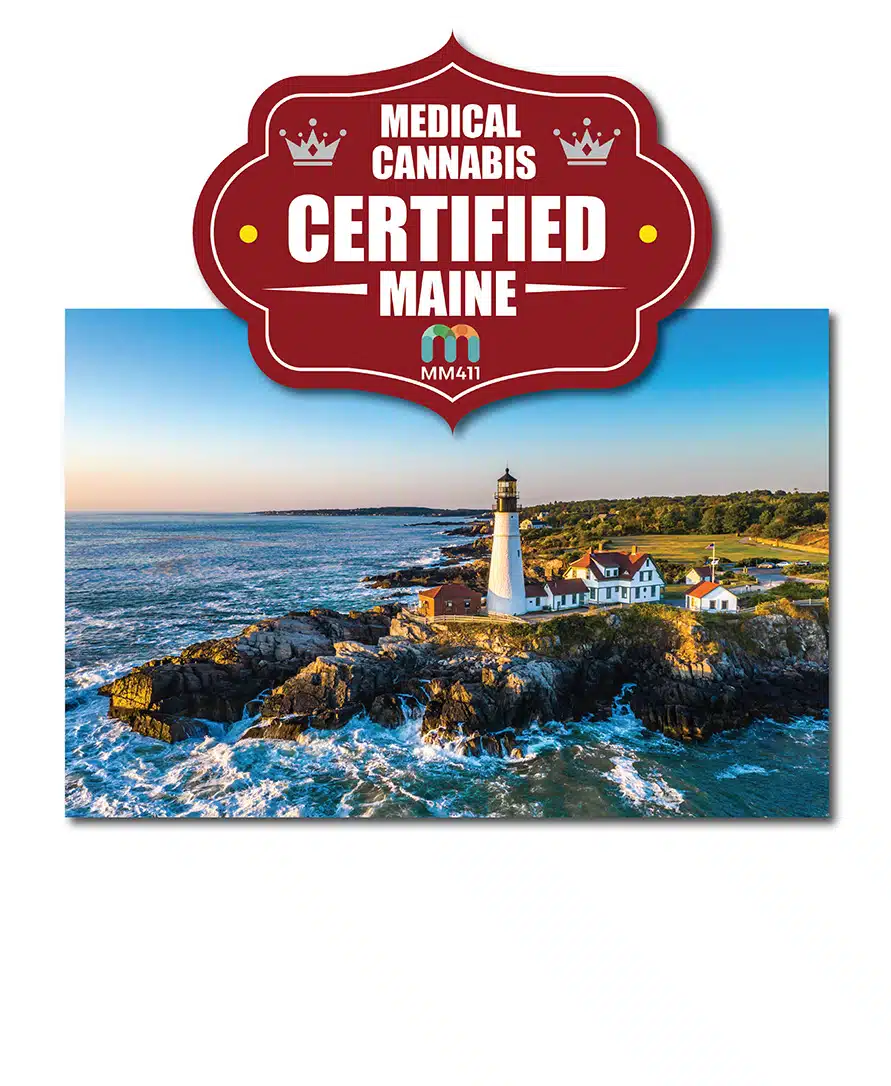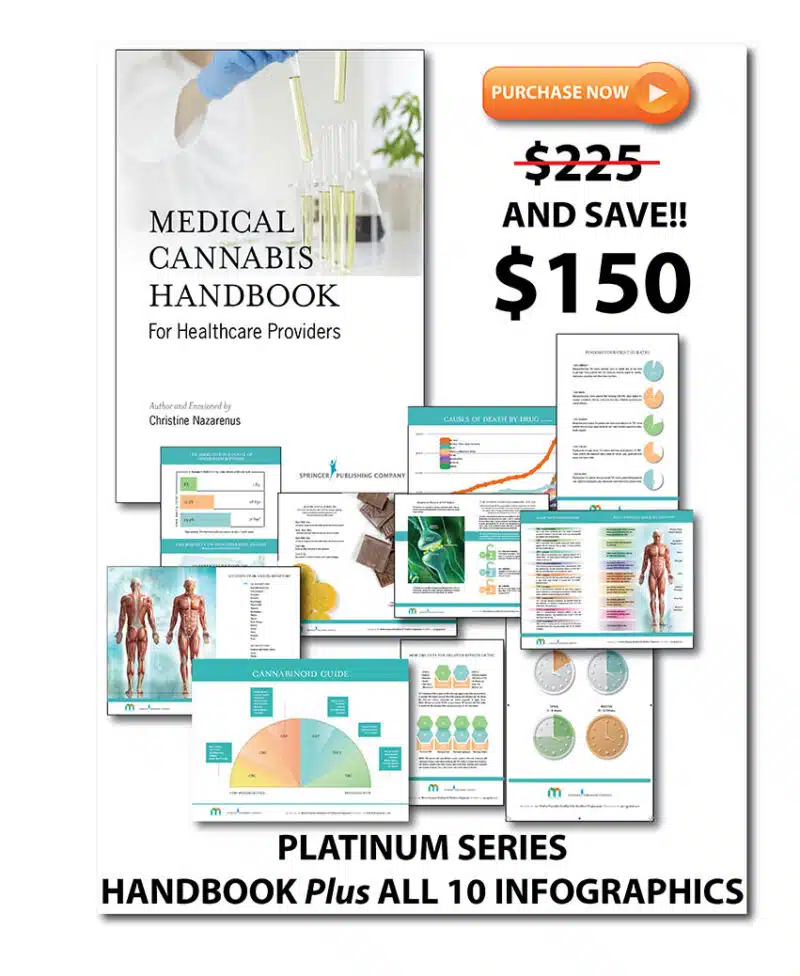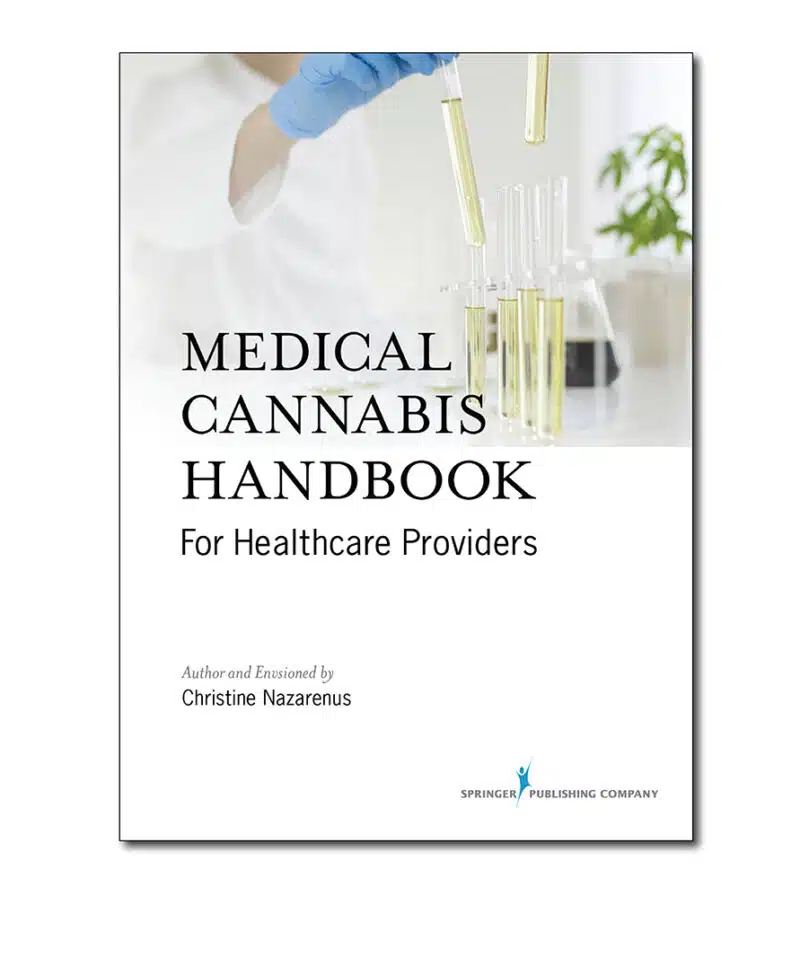Does your state have legal medical marijuana?
Yes. Maine has approved Adult Use (recreational cannabis ) and has a Medical Use of Marijuana program. Maine voters had approved the recreational use, retail sale, and taxation of marijuana in November 2016 and as per the Maine Legalization Act, both Recreational and Medical marijuana dispensaries are open for business in Maine. Though adult-use marijuana was legalized in 2016, Maine did not establish regulations for commercial sales until 2019, when Gov. Janet Mills signed LD 719 to approve a ruleset.
The Maine Medical Use of Marijuana Program (MMMP) exists to ensure and facilitate an efficient, responsible and legal medical cannabis environment within the State of Maine. It provides compliance oversight, processes, guidelines and support to registered participants involved in the cultivation, processing and selling of medical cannabis and products containing it.
What does the Certification Include?
The Medical Cannabis Foundational Certification will allow you to learn the core fundamentals of cannabis science and explore cannabis industry knowledge, so you are prepared to be a certified in your state. Our courses and certifications will provide you with knowledge and skillset to enter the cannabis job market competitively, right out of the gate. This certification is not just for medical professionals, but for budtenders who want to enroll in the most robust cannabis certification course as your educational foundation.
As you expand your cannabis educational pursuits, make sure to check out additional courses such as our Advanced CBD Certification. Medical Marijuana 411 will be adding new expert level certifications monthly. Subscribe to our e-news to stay informed!
The Medical Cannabis Foundational Course is an online course that covers a series of 12 modules designed to teach healthcare and industry professionals the fundamental topics of cannabis and includes a specific module on the legal framework, forms and other pertinent information regarding the Maine Medical Marijuana program.
In addition to Maine specific Medical Use of Marijuana Program (MMMP) regulations and the State of Maine’s adult use cannabis program: statute and rule. You will also learn about the federal legal framework of working with medical marijuana patients, the basics of the cannabis plant, the Endocannabinoid System, and how cannabinoid receptors work with our bodies. Additional modules will cover important topics like: how to medicate, inhalation versus ingestion, contraindications, drug-on-drug interactions, and recommended rations of specific illnesses.
Did you know? Healthcare Professionals are covered by Federal Law to talk to patients about Medical Marijuana even in non-legal states by an existing statute? That’s the wealth of information contained in MM411, Inc. certifications.
This certification also includes: video testimonials from scientists and medical experts, downloadable infographics, additional visuals to support the written content followed by an exam to receive your certificate. Any individual wanting to learn more about the science of cannabis will find the course valuable. And we guarantee your complete satisfaction or your money back. To date, MM411, Inc has never had a return. Enrollees love our certifications and we stand by our courses with a 100% guarantee.
Legal Assessment
Maine – Marijuana Legal Overview
The Maine Medical Use of Marijuana Program (MMMP) exists to ensure and facilitate an efficient, responsible and legal medical cannabis environment within the State of Maine. It provides compliance oversight, processes, guidelines and support to registered participants involved in the cultivation, processing and selling of medical cannabis and products containing it.
As of June 6, 2019, medical cannabis patients visiting Maine from other jurisdictions are no longer required to obtain certification from a Maine-based medical provider or to designate a registered caregiver or dispensary in order to obtain medical cannabis. To review the list of states whose medical cannabis credentials are approved for use in Maine, please visit: https://www.maine.gov/dafs/ocp/medical-use/visiting-patients.
There are two aspects to the State of Maine’s adult use cannabis program: statute and rule. The Marijuana Legalization Act was first passed by voters in 2016 and later amended by the legislature. This law currently appears in Title 28-B of the Maine Revised Statutes, while other aspects of the law involving cannabis are chaptered elsewhere.
Rules are implemented by state agencies to build upon existing law. The Marijuana Legalization Act includes both mandatory and discretionary rulemaking intended to establish a regulatory framework governing adult use cannabis in Maine. Broadly, Title 28-B, Section 104 states that the Department of Administrative and Financial Services shall “adopt all rules necessary to implement, administer and enforce” the Marijuana Legalization Act. In addition, the statute specifies rulemaking in areas including, but not limited to, tracking cannabis plants and product, enforcement and compliance, health and safety data, labeling and packaging, and licensing and fees.
Qualifying Conditions
- Alzheimer’s disease
- Amyotrophic Lateral Sclerosis
- Cachexia or wasting syndrome
- Cancer
- Chronic pain
- Crohn’s disease
- Epilepsy
- Glaucoma
- Hepatitis C
- HIV or AIDS
- Huntington’s disease
- Inflammatory bowel disease
- Multiple Sclerosis
- Nausea
- Nail-patella syndrome
- Parkinson’s disease
- Post-traumatic stress disorder (PTSD)
- *Legislation (LD 1539) approved on July 9, 2018 amends the state law so that a physician at his or her sole discretion may recommend cannabis to any patient for which he/she believes it will benefit. The new law takes effect 90 days after the close of the 2018 special legislative session.
Course Syllabus
Module 1 – US Legal
- U.S. Controlled Substances Act
- Drug Schedule – Cannabis Schedule I
- Drug Schedule (Graphic)
- COVID Cannabis Guidelines
- Economic Impact
- Cannabis genus of flowering plants in the family Cannabaceae
- Legal differentiation between hemp and marijuana distinguished by their respective concentrations of the cannabinoid delta-9 tetrahydrocannabinol (THC)
- 2018 Farm Bill
- Impact on hemp classification
- SAFE Banking Act
- U.S. Pat. No. 6,630,507
- Trademarks
- Ogden Memo
- Cole Memo
- Wilkenson Memo
- 2018 Sessions Memorandum
- Rohrabacher–Blumenauer Amendment
- Joyce Amendment
- Conant v. Walters
- What Medical Professionals Can Legally Provide To Their Patients (Graphic)
- Cannabis and Cannabis-Derived Compounds: Quality Considerations for Clinical Research
- Guidance for Industry – Downloadable PDf
- Cannabis and Cannabis-Derived Compounds: Quality Considerations for Clinical Research
- Guidance for Industry – Video Explainer
- Taxes
- Affirmative Defense
- Bankruptcy Protection
- Employment Law
- Access to Banking – Financial Crimes Enforcement Network FinCEN Guidance
- Copyright and Registration
Module 2 – Maine Medical Use of Marijuana Program (MMMP) and Adult Use Legal
Module 3 – History
- Early History of Cannabis Use
- Cannabis in the West
- U.S. Prohibition History
- The Medical Implications of U.S. Prohibition
- Medical Cannabis Today
- Hemp vs Cannabis
- Brief Chronology of History in Spain and throughout Europe
Module 4 – The Discovery of the Endocannabinoid System
- Introduction of the Endocannabinoid System (ECS)
- Largest Receptor System
- ECS – Video Explainer
- Newly Discovered
- Chemical Bridge to All Bodily Functions
- Homeostasis
- Healthy Body = Healthy ECS
- ECS – Downloadable Graphic
- Dr Jake Felice – What is the Endocannabinoid System (ECS)? Video Interview
- Largest Neurotransmitter System of all “the body’s supercomputer”
- 1964 discovery of THC and CBD – Raphael Mechoulam, Ph.D and Yehiel Gaoni, Ph.D
- The Scientist – video regarding Raphael Mechoulam, Ph.D discoveries
- Allyn Howlett, Ph.D – Isolating THC in the brain – 1998
- No cannabinoid receptors in the cardiac and respiratory centers of the brainstem therefore no overdose from cannabis
- Raphael Mechoulam, Ph.D found in 1992, brain chemical that mirrors the effects of THC
- Two brain chemicals – anandamide, Sanskrit word “ananda” brain chemical that mimics THC and CBD, 2-Arachidonoylglycerol, which they named 2-AG.
- Endogenous Molecules “endocannabinoids”.
- CB1 receptors, and CB2 receptors
- Cannabinoids and how they attach to receptors
- CB1 receptors
- Located in the central nervous system and affect many brain functions including movement, anxiety, stress, fear, pain, appetite, reward, and motor control
- CB2 receptors
- CB2 receptors control the release of cytokines, immuno-regulatory proteins, that are linked to inflammation during illness or after injury.
- Retrograde Inhibition
- Lack of education on the Endocannabinoid System
- Clinical Studies
- At a Glance – Downloadable Infographic
- Homeostatsis
- Human Thriving Behavior and the ECS
Module 5 – One Plant, One Complex Chemical Factory
- Minor Cannabinoids: CBG CBC CBN THCV
- Terpenes
- The Entourage Effect & Tolerance / ECS Down Regulation
- Botanical vs. Single Molecule Compounds & Cannabinoids and Opioids
Module 6 – Getting Cannabinoids into the Bloodstream
- Inhalation: Smoking vs. Vaporization
- In the News Discussions
- Cannabis Flower vs. Concentrate
- Different Concentrate Consistencies
- Extraction Methods
- Winterization
- Concentrates Using Solvents
- Solventless Concentrates
- Edibles, Oral Mucosal, Topicals and Suppositories
- The Role of the Medical Provider
- The Role of the Dispensary: Experts within the Dispensary
Module 7 – Patient Centered Dosing
- Considerations Before Medicating with Cannabis
- Set and Setting
- Drug-Drug Interactions
- Relative Contraindications
- Youth Under 25
- Patients and Cardiac Conditions
- Patients with Psychiatric Diagnoses
- Immunocompromised Patents
- Biphasic Effect
- Finding the Appropriate Dose
- Recommended Ratios for Specific Illnesses
Module 8 – Laboratory Testing
- How Testing Works
- Contaminants: Pesticides, Fungi and Mold
- How to Interpret a Test
Module 9 – Clinical Practice
- Anxiety Disorders
- Cancer
- Epilepsy
- Gastrointestinal Disorders
- Glaucoma
- HIV/AIDS
- Migraine Headaches
- Multiple Sclerosis
- Neurodegenerative Disorders
- Neuropathy
- Pain
- Palliative Care
- Parkinson’s Disease
- Post Traumatic Stress Disorders
- Sleep Disorders
- Traumatic Brain Injury (TBI)
- Endometriosis
- Premenstrual Syndrome and Premenstrual Dysphoric Disorder
- Menopause
Module 10 – Cannabis and Opioids
- Pain Management Today
- Cannabis and Opioids: The Good News
- Cannabis and NSAIDS: More Good News
Module 11 – Medical Myths and Facts
- Gateway Theory, Addiction and Brain Function
- Impaired Motivation, Memory and Mental State
- Lung Damage, Usage Patterns and Overall Danger
Module 12 – Side Effects Abuse and Misuse
- Cannabinoid Hyperemesis Syndrome
- Cannabis Use Disorder (CUD)
- Short and Long Term Side Effects
- Physical and Mental Effects
- Cannabis and driving
- Cannabis Overconsumption and Tolerance


